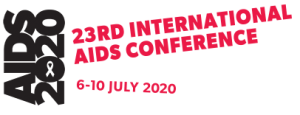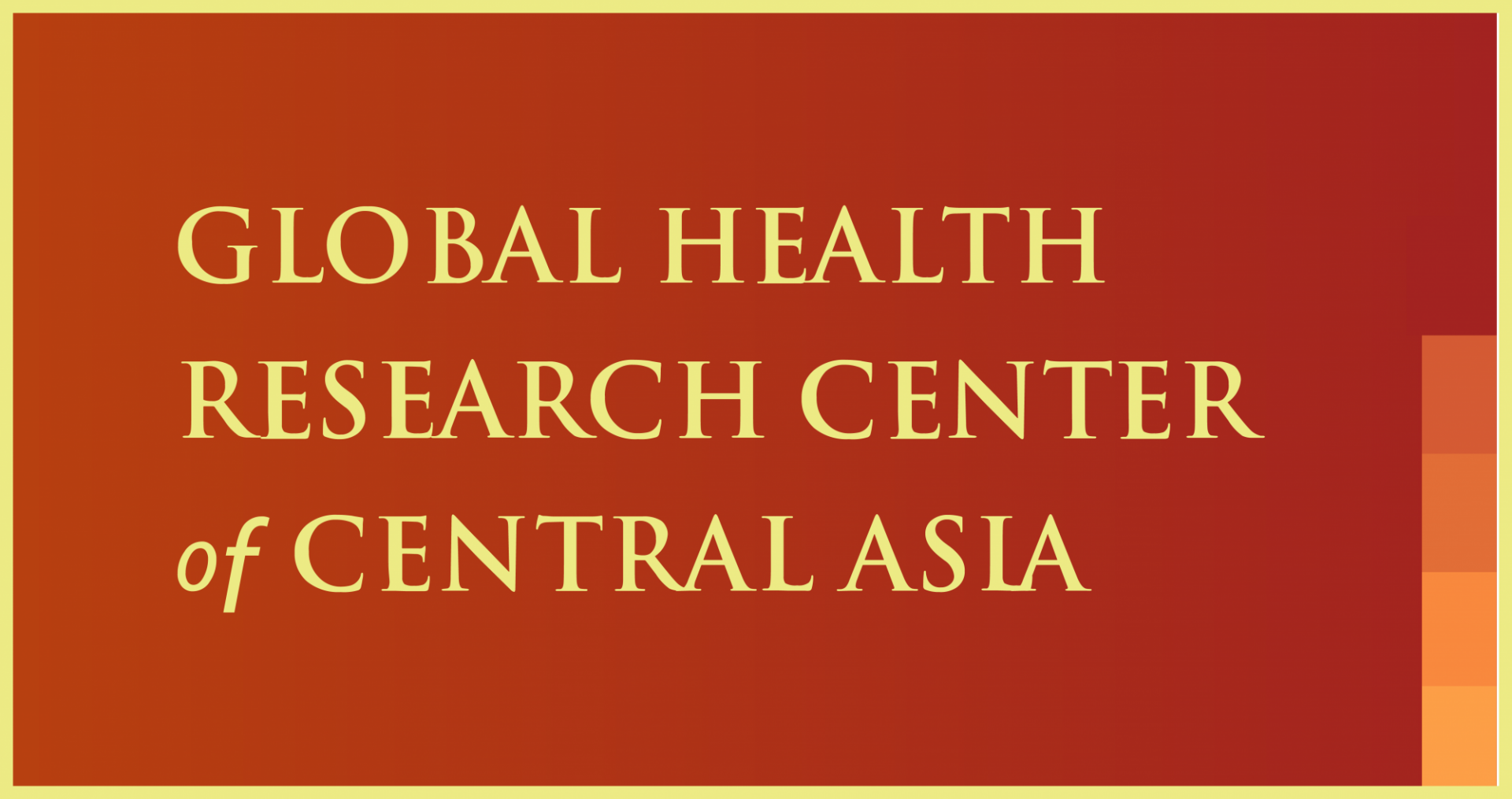Researchers and scientists from the Social Intervention Group (SIG) and the Global Health Research Center of Central Asia (GHRCCA) are participating in multiple sessions at the 23rd International AIDS Conference.

The International AIDS Conference is the largest gathering on HIV and AIDS in the world.
Researchers and scientists from the Social Intervention Group (SIG) and the Global Health Research Center of Central Asia (GHRCCA) are participating in multiple sessions at the 23rd International AIDS Conference.
From a pre-conference symposium on June 30th to eight poster sessions and oral presentations, our researchers will be sharing their latest on HIV research.
More about each session follows.
Project PACT
Time/Date tba
Presentation by Dawn Goddard-Eckrich, EdD, Associate Research Scientist at SIG
- Title: PACT: A randomized controlled trial to evaluate effectiveness of implementing a couple-based HIV/STI prevention intervention for men in community corrections in New York City
- Synopsis: Project PACT (Protect and Connect) has successfully proven a new approach to reducing sexual risk behaviors among men in community supervision programs. PACT is a five-year randomized clinical trial conducted in New York City that included 230 drug-involved men in community supervision programs and their primary female partners. Participants in the PACT arm were less likely to engage in risky sexual behaviors, including sex without a condom, multiple sexual partners, and sex under the influence of drugs and alcohol which often lead to HIV and STI acquisition and transmission. The findings were also published in JAMA Network Open.
Connect ‘N Unite (CNU)
On Demand E-Poster
Poster Session, Presented by Christina Aivadyan, predoctoral fellow in the T32 Training Program in HIV, Substance Abuse, and Criminal Justice
- Title: Age, Substance Use, and Their Relationship to Sexual Risk Behaviors Among Black Men Who Have Sex With Men in New York City
- Synopsis: The session examines the ways in which age and developmental level differentially affect the relationship between substance use and sexual risk behavior among Black men who have sex with men in New York City.

Several presenters from the the Global Health Research Center of Central Asia (GHRCCA) will be presenting research from our global center in Kazakhstan.
EECA Project
July 7th, 3:10 am - 4:40 am
Presentation by Assel Terlikbayeva, Regional Director of the Global Health Research Center of Central Asia
- Session BS15: Syndemics of HIV and substance use: Gaps and advances
- Presentation title: Bringing effective interventions to scale to address HIV and opioid epidemics in Kazakhstan
- Synopsis: An overview of opioid overdose in the region, including epidemiology, existing policies and availability of Naloxone to reverse opioid overdose in four countries of the region: Kazakhstan, Tajikistan, Kyrgyzstan, and Ukraine. The presentation will briefly mention the results of earlier projects on opioid overdose conducted by GHRCCA in 2012 and describe in detail the WHO/UNODC Stop Overdose Safely (SOS) Initiative (2016-2020), a multi-site implementation study on community management of Naloxone in the same four countries. GHRCCA worked as a National Research Partner responsible for the project implementation and data collection in Kazakhstan. The presentation will also cover some preliminary results and conclusions from this study.
Project BRIDGE
July 8th, 9:35 - 10:20 am
Oral presentation, by Sholpan Primbetova, MSSW, Deputy Regional Director of the Global Health Research Center of Central Asia
- Session OAE08, Take the wheel: Communities in the driving seat of HIV service delivery
- Title: Nurses and outreach workers are important but undervalued care providers in HIV care and harm reduction programs in Kazakhstan (OAE0805)
- Authors: Sholpan Primbetova, Timothy Hunt, Tara McCrimmon, Meruyert Darisheva, Assel Terlikbayeva, Pavel Gulyaev, Azamat Kuskulov, Yelena Rozental, Daniyar Bekishev, Louisa Gilbert, Elwin Wu, Gaukhar Mergenova, Dawn A. Goddard-Eckrich, Nabila El-Bassel
- Background: In Kazakhstan nurses and outreach workers in primary health care one of the largest providers of HIV services and harm reduction programs to key populations. For this NIDA-funded Implementation research study (Bridge) we examined syringe exchange program (SEP) workers’ roles in HIV care, job climate, level of job demands and satisfaction, training needs, and ability to perform their job on HV care.
- Conclusion: In order to improve HIV testing and treatment cascade among PWID, nurses and outreach workers need to be engaged in HIV linkage to care and treatment adherence services. They face organizational and individual issues. At organizational level, staff reported that they are undervalued for their demanding and important job, underpaid, hard to change the system. Individually, they experience lack of training on how to work with PWID living with HIV, rapid HIV testing, linkage to care and HIV treatment. Additional training on HIV care, institutional changes and better funding will improve nurses and outreach workers level of job satisfaction and decrease job demands and improve treatment outcomes among PWID
July 8th, 10:20 am - 11:50 am
Presentation by Assel Terlikbayeva, Regional Director of the Global Health Research Center of Central Asia
- Session BS08, Leveraging by doing: Research to advance the HIV response
- Presentation title: Implementing HIV testing and linkage to care in Kazakhstan
- Synopsis: Focus will be on the implementation science of bringing a combination evidence-based HIV outreach, testing and linkage to care intervention into harm reduction programs in Kazakhstan. The presentation will cover the process, barriers and strategies for effective implementation utilized in project BRIDGE, the stepped-wedge study conducted in three sites in Kazakhstan. Some preliminary results on effectiveness of social network strategy for bringing new clients and finding lost to follow up as well as increasing the yeild of HIV testing will be presented.
On Demand E-Poster
Poster Session, Track D, presented by Tara McCrimmon, MPH, MIA, Project Director, SIG, Global Health Research Center of Central Asia
- Title: Religion and internalized stigma among HIV-positive People who Inject Drugs (PWID) in Kazakhstan
- Authors: Tara McCrimmon, Louisa Gilbert, Meruyert Darisheva, Mingway Chang, Timothy Hunt, Assel Terlikbayeva, Sholpan Primbetova, Elwin Wu, Nabila El-Bassel
- Synopsis: Many study participants reported internalized stigma, which can present barriers to HIV treatment and adherence. Our results suggest that stronger religious influence and higher religious service attendance are both associated with increased experience of internalized stigma.
Poster Session presented by Meruyert Darisheva, PhD, MS, Project Director, Global Health Research Center of Central Asia
- Title: Beliefs and lack of knowledge about methadone among PWID living with HIV present barriers for service utilization in Kazakhstan
- Authors: Meruyert Darisheva, Tara McCrimmon, Assel Terlikbayeva, Sholpan Primbetova, Pavel Gulyayev, Yelena Rozental, Daniyar Bekishev, Azamat Kuskulov, Tim Hunt, Elwin Wu, Louisa Gilbert, Nabila El-Bassel
- Synopsis: Many study participants had lack of knowledge and negative attitude toward Opioid Substitution Therapy (OST), which can present barriers to expand the program in Kazakhstan. More information about OST should be distributed among people who inject or use drugs and health care workers that serve and treat them.
Project NOVA
Poster presentation (A-AIDS2020-05981) presented by Trena Mukherjee, DrPH student in Epidemiology at the Mailman School of Public Health; pre-doctoral fellow, HIV Implementation Science Training grant
- Title: Policing Practices and HIV Risk among Female Sex Workers who use Drugs in Kazakhstan
- Authors: Trena Mukherjee, Tara McCrimmon, Gaukhar Mergenova, Sholpan Primbetova, Assel Terlikbayeva, Susan Witte, Nabila El-Bassel
- Synopsis: Dramatic declines in income and employment after the collapse of the Soviet Union have forced many women to engage in sex work. Though sex work in Kazakhstan is partially decriminalized, drug use is criminalized. This leaves female sex workers (FSW) who use drugs to face regular and systematic extortion, detention, harassment, physical and verbal abuse, and sexual coercion from police. There are a limited number of studies that consider the unique vulnerabilities of FSW who use drugs, despite their increased vulnerability to HIV and exposure to police. This study sought to identify the prevalence of police-perpetrated violence and detention among 400 FSW who use drugs recruited from Temirtau and Almaty, Kazakhstan. We also sought to examine associations between police violence, detention and HIV-related risk factors. Our results indicate that 24% of women experienced some form of police violence, and 29% were detained in the 90 days prior. Experiencing police violence and being detained were both associated with an increased risk of needle sharing, and being diagnosed with an STI. Police violence was also associated with having a greater number of paying clients. The integration of policing and public health has been successfully implemented in Kyrgyzstan and may be a novel approach to HIV prevention among FSW who use drugs in Kazakhstan. We recommend interventions to increase police accountability through sensitization workshops, advocacy and institutional accountability.
SMART Couples II
On Demand E-Poster
Poster Session Track D, Presented by Sara E. Landers, Doctoral Student and Graduate Research Assistant, Social Intervention Group, School of Social Work
- Title: Perceptions of opioid substitution therapy among people with HIV who inject drugs and their intimate partners in Kazakhstan
- Authors: Landers, S.E., Nussinov, T., Mergenova, G., Sarsembayeva, L., Gulyaev, V., Primbetova, S., Terlikbayeva, A., & Davis, A.
- Background: Interviews were conducted with HIV+ PWID and their intimate partners in Almaty, Kazakhstan to examine their perceptions of opioid substitution therapy (OST), which may help individuals overcome drug dependency and increase adherence to antiretroviral therapy but is not yet widely available in this region. Many participants expressed mistrust and misperceptions regarding OST, especially methadone. If OST programs are to continue in Kazakhstan, a concerted effort should be made to combat misperceptions and address concerns in order to increase uptake.
- Synopsis: The session will share data from Phase I of the SMART Couples II project, in which members of the study team interviewed HIV+ PWID and their intimate partners about barriers and facilitators of adherence to ART and perceptions of opioid substitution therapy (OST). The session will share how this poster's data relates to the larger intervention. The purpose of the larger project is to incorporate the couples-based intervention strategy with efficacious individual-level adherence strategies, including OST, in order to increase rates of ART adherence among people who inject drugs and ultimately reduce HIV transmission and HIV-related morbidities.
Project UNI
On Demand E-Poster
Poster session, Track D, presented by Emily Allen Paine, PhD., Postdoctoral Research Fellow
- Title: PED0968 - HIV stigma, homophobia, community connectedness, and HIV testing among gay, bisexual, and other men who have sex with men in Kazakhstan
- Authors: Emily Allen Paine, Yong Gun Lee, Vitaly Vinogradov, Gulnara Zhakupova, Timothy Hunt, Sholpan Primbetova, Assel Terlikbayeva, Nabila El-Bassel, Elwin Wu
- Synopsis: Gay, bisexual, and other men and transgender people who have sex with men in Kazakhstan who had ever been tested for HIV reported less stigmatizing attitudes about people living with HIV as well as sexual and gender minority identities and behaviors—but felt more connected to other sexual and gender minorities—than those who had never been tested.
On Demand E-Poster
Poster session, presented by Yong Gun "YG" Lee, Research Coordinator, UNI; PhD Candidate
- Title: Correlates of being untested for HIV among men who have sex with men (MSM) in Kazakhstan
- Authors: Yong Gun Lee, Gulnara Zhakupova, Vitaliy Vinogradov, Emily Allen Paine, Timothy Hunt, Sholpan Primbetova, Assel Terlikbayeva, Nabila El-Bassel, Elwin Wu
- Synopsis: Using data from the ongoing UNI Project, the current study examines HIV testing history among a sample (N=304) of MSM in Kazakhstan, and finds several correlates--related to sociodemographic characteristics and HIV-risk indicators--of being untested for HIV. The study highlights the need for ongoing efforts of facilitating HIV testing uptake among MSM in Kazakhstan.
On Demand E-Poster
Poster session, presented by Dr. Elwin Wu, Co-Director, SIG
- Title: Prevalence and Correlates of HIV Infection and Unknown HIV Infection among men who have sex with men (MSM) in Kazakhstan: Evidence for a Brewing Syndemic from a Multi-City Study
- Authors: Elwin Wu, Yong Gun Lee, Gulnara Zhakupova, Vitaliy Vinogradov, Sholpan Primbetova, Assel Terlikbayeva, Nabila El-Bassel, Timothy Hunt, and Gaukhar Mergenova
- Synopsis: In this multi-site study with MSM in Kazakhstan, more than a fifth of the sample was infected with HIV. Of concern, less than half of those living with HIV knew they were infected. Given the numbers of [male] sexual partners that reported by respondents, combined with more than half of the sample engaging in condomless anal intercourse and/or chemsex, findings underscore the pressing need to address sexual transmission of HIV among MSM in Kazakhstan.
In case you missed it: HISTP Pre-Conference Symposium
On June 30th, the HIV Intervention Science Training Program for Underrepresented Investigators (HISTP) scholars hosted a pre-conference symposium at the International AIDS Society annual conference AIDS2020, entitled The Use of Technology for HIV Prevention and Intervention for Youth and Young Adults: Growing the Global Research by Promising Scholars of Color.
This symposium shared the work of the HISTP scholars, including innovative HIV studies addressing multi-level aspects of HIV risk, prevention, and implementation science that leverage technology among key populations in Africa and the United States. In addition, symposium moderators will synthesize lessons learned in supporting promising new investigators of color and developing technology-supported intervention and implementation science.
Read the entire story, including links to the researchers and presentations.
Follow SIG's work by signing up for our monthly newsletter or following us on Twitter.





